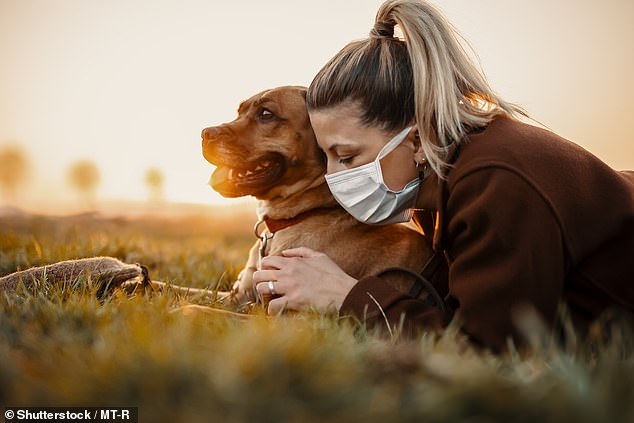
Scientists warn that animals could become 'reservoirs' of the virus even after it is eradicated in humans
Animals could become 'reservoirs' of coronavirus and lead to a second outbreak even if it is eradicated in humans, according to scientists writing in the Lancet, a medical journal.
Researchers from University College London say a global effort is needed to monitor possible outbreaks of the virus in various animal populations around the world.
Advertisement
They claim that if the virus becomes common in an animal population that lives near people, such as pets or livestock, it could lead to another outbreak in that area.
The authors call for more research into which animals are susceptible to SARS-CoV-2, the virus causing the Cocid-19 disease, in the hope of stopping this from happening.
Co-author Professor Joanne Santini said there is evidence that some animals can catch the virus from humans and may be able to transmit it back to them.
'We don't know just how much of a risk this is, as it's an area of study that has not yet been prioritised,' the biologist wrote in the opinion piece for the medical journal.
'We need to develop surveillance strategies to ensure we don't get taken by surprise by a large outbreak in animals, which could pose a threat not just to animal health but to human health as well.'
Studies suggest Covid-19 started in a bat population in China, jumped to a second animal species, before being passed on to humans last year.
With evidence that these animals can not only catch it from humans but pass it back on to them again - more work is essential to understand this process.
'Virus transmission in animal populations could become irreversible if left unchecked, and may threaten the success of public health measures if people continue to catch the virus from an infected population of animals,' she said.
Notably, there have been recent cases in the Netherlands of farmed mink becoming infected with SARS-CoV-2, leading to two people catching the virus from these animals, in an outbreak that has led to thousands of mink being culled.
The researchers say this highlights not only the risk to human health, but also animal welfare concerns and potential loss of livelihoods in the agricultural sector.
Professor Edwards said there was an urgent need for widespread surveillance of animal populations by testing large numbers of animals for the virus.
She said the focus should be on animals that live close to humans such as pets, livestock and urban wildlife.
'More laboratory experiments on small numbers of animals are unlikely to give us the evidence needed to be confident that certain species are entirely safe, making major surveillance work the only real option here,' said Edwards.
'We need more information, at the same time as taking simple precautionary measures especially with species which have the potential to spread the virus rapidly in the wild,' the researcher said.
'A robust risk assessment would also require reviewing our ability to manage an outbreak in those animals, namely our ability to isolate, protect, or contain different animals.'
Dailymail.co.uk



